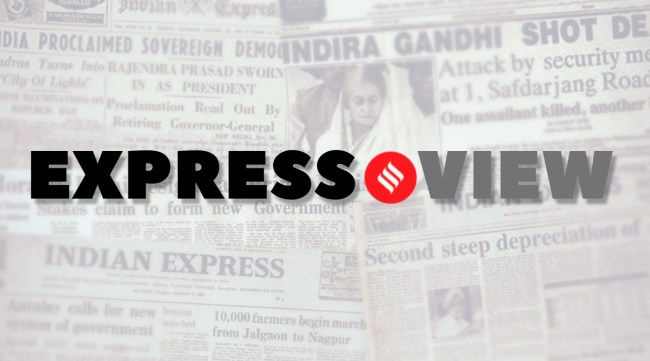Opinion Express View: Harry Belafonte’s commitment to activism only burnished his stardom
His album ‘Calypso’ was the first to sell a million copies and he was the first Black actor to win an Emmy and a Tony. But it was his political consciousness that drove him
 Belafonte was the first Black actor to win an Emmy and a Tony, but increasingly, it was his political consciousness that drove him. He marched with Martin Luther King Jr and helped fund the civil rights movement.
Belafonte was the first Black actor to win an Emmy and a Tony, but increasingly, it was his political consciousness that drove him. He marched with Martin Luther King Jr and helped fund the civil rights movement. In 1956, Harry Belafonte made history when his album ‘Calypso’, featuring hits like The Banana Boat Song (Day-O) and Jamaica Farewell, became the first ever to sell a million copies. No eyebrows would have been raised if he had decided to solely refine his art and pursue professional success. That Belafonte, who died this week at 96, instead chose to fight larger political battles from the late 1950s onwards, ensured a rich legacy that went beyond the musical.
The distance afforded by time might make it hard to remember how groundbreaking Belafonte’s stardom, in music and later, in cinema, was. America, in the 1950s and ’60s, was a place where even those who enjoyed a rousing rendition of Man Smart (Woman Smarter), might object to a fictitious mixed-race romance, such as the one featuring Belafonte and Joan Fontaine in the 1957 movie Island in the Sun. In 1960, a television special saw controversy when singer Petula Clark touched Belafonte, leading to objection from one of the sponsors. In this environment, the outspoken activist in Belafonte trumped the gifted performer — famously, he turned down the film adaptation of the hit George Gershwin opera Porgy and Bess, citing its troubling attitude to race and publicly criticised friend Sidney Poitier, another actor of colour, for taking it on.
Belafonte was the first Black actor to win an Emmy and a Tony, but increasingly, it was his political consciousness that drove him. He marched with Martin Luther King Jr and helped fund the civil rights movement. Over the decades, other battles found in him a staunch backer — he supported Nelson Mandela, brought together some of the era’s biggest stars for the 1985 charity single We Are The World to raise money for famine-struck Ethiopia. Despite the occasional controversy — like when he referred to then US president George W Bush as a “terrorist” — Belafonte’s commitment to activism only burnished his stardom, adding credibility to glamour.






